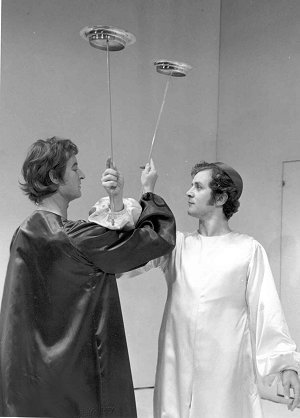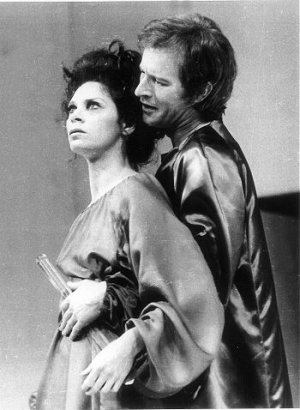Thank God for Peter Brook. Of all the world's directors at this moment, he seems to be the most open, the least dogmatic and egoistic, the most responsive to things as they really are in the theater, the most fruitful problem solver, and incomparably the finest synthesiser of past and present. Brook is a man of life, of transcendentally practical necessity, breathing the air of reality.
One of the many things that Brook seems to understand with unique keenness is the absolute necessity of refreshing the the example of Shakespeare - the greatest imaginative synthesis of the West, an example of personal creative power that remains an atomic trigger lodged within our very consciousness. And no one understands better than Brook that this necessity is neither a matter of academic correctness, nor "making contemporary," but finding a way to prick into life the Shakespearean germ plasm, so that we apprehend it as a living form, a transcendent organism of art that shapes the purport of human consciousness. This Brook has done in his wonderful production of A Midsummer Night's Dream, one of the most beautiful Shakespearean productions of our lifetime, a thing to make you fall in love all over again with art and theater and Shakespeare and the liberating possibilities of ultimate sensibility.

